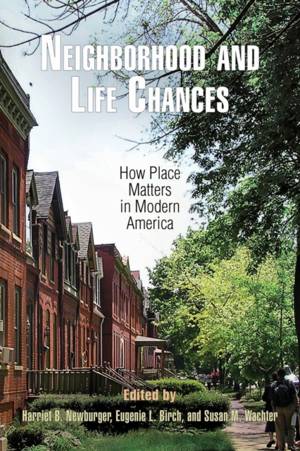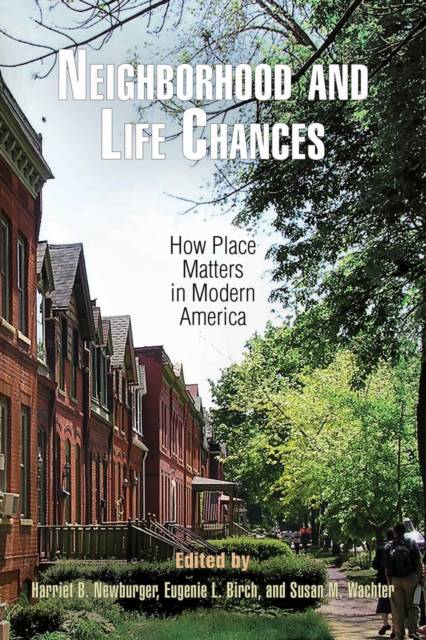
Wil je zeker zijn dat je cadeautjes op tijd onder de kerstboom liggen? Onze winkels ontvangen jou met open armen. Nu met extra openingsuren op zondag!
- Afhalen na 1 uur in een winkel met voorraad
- Gratis thuislevering in België vanaf € 30
- Ruim aanbod met 7 miljoen producten
Wil je zeker zijn dat je cadeautjes op tijd onder de kerstboom liggen? Onze winkels ontvangen jou met open armen. Nu met extra openingsuren op zondag!
- Afhalen na 1 uur in een winkel met voorraad
- Gratis thuislevering in België vanaf € 30
- Ruim aanbod met 7 miljoen producten
Zoeken
Neighborhood and Life Chances
How Place Matters in Modern America
€ 69,45
+ 138 punten
Omschrijving
Does the place where you lived as a child affect your health as an adult? To what degree does your neighbor's success influence your own potential? The importance of place is increasingly recognized in urban research as an important variable in understanding individual and household outcomes. Place matters in education, physical health, crime, violence, housing, family income, mental health, and discrimination--issues that determine the quality of life, especially among low-income residents of urban areas.
Neighborhood and Life Chances: How Place Matters in Modern America brings together researchers from a range of disciplines to present the findings of studies in the fields of education, health, and housing. The results are intriguing and surprising, particularly the debate over Moving to Opportunity, an experiment conducted by the Department of Housing and Urban Development, designed to test directly the effects of relocating individuals away from areas of concentrated poverty. Its results, while strong in some respects, showed very different outcomes for boys and girls, with girls more likely than boys to experience positive outcomes. Reviews of the literature in education and health, supplemented by new research, demonstrate that the problems associated with residing in a negative environment are indisputable, but also suggest the directions in which solutions may lie. The essays collected in this volume give readers a clear sense of the magnitude of contemporary challenges in metropolitan America and of the role that place plays in reinforcing them. Although the contributors suggest many practical immediate interventions, they also recognize the vital importance of continued long-term efforts to rectify place-based limitations on lifetime opportunities.Specificaties
Betrokkenen
- Uitgeverij:
Inhoud
- Aantal bladzijden:
- 392
- Taal:
- Engels
- Reeks:
Eigenschappen
- Productcode (EAN):
- 9780812222654
- Verschijningsdatum:
- 14/03/2013
- Uitvoering:
- Paperback
- Formaat:
- Trade paperback (VS)
- Afmetingen:
- 152 mm x 226 mm
- Gewicht:
- 635 g

Alleen bij Standaard Boekhandel
+ 138 punten op je klantenkaart van Standaard Boekhandel
Beoordelingen
We publiceren alleen reviews die voldoen aan de voorwaarden voor reviews. Bekijk onze voorwaarden voor reviews.










